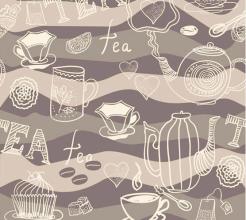Introduction to the characteristics of High-quality Coffee beans in Rwanda Coffee producing area
Before 2006, the provinces were Butare, Byumba, Cyangugu, Gikongoro, Gisenyi, Gitarama, Kibungo, Kibuye, Kigali, Kigali Rural, Ruhengeri and Umutara.
New administrative divisions were introduced on 1 January 2006. Rwanda is divided into four provinces (Rwandan: intara): Province de l Est, Province du Nord, Province de l Ouest, Province du Sud, Ville de Kigali and one municipality (Kigali), with 40 akareres and 416 umujyi.
Before 1 January 2006, the country was divided into 12 provinces. Later, in order to solve the problems caused by the Rwandan genocide in 1994, the government decided to reorganize the political district. The primary reason for this was decentralization, which was perceived by the authorities as a major factor in the genocide, and the secondary reason was to diversify the communities in the regions in order to reduce ethnic polarization
But anyway, the soft, rich flavor of the country's coffee is excellent.
Rwanda is a small African country, and the local people are also relatively poor, but it produces very good straight coffee, which is different from its neighbors Kenya and Ethiopia. Rwanda's coffee is mainly round bourbon, and the taste is not as prominent as Ethiopia and Kenya, but the uniformity is excellent.
Rwanda Karnogi coffee is grown and harvested by local small farmers and washed by Gitesi Washing Station. Although this is a relatively young coffee processing plant, it has always been famous for producing high quality Rwandan coffee due to its serious and responsible working attitude, good processing equipment and standardized processing procedures. Rwanda Karnogi coffee won the first place in the CoE in 2013. The coffee bean shape is a typical bourbon shape, round beans, crystal clear, Very clean.
Since the 1920s, Arabica coffee grown in Rwanda has been known worldwide for its distinctive fruity sweetness and intense grassy aroma. In recent years, the Rwandan government has taken active measures to vigorously promote coffee production, establish coffee production cooperatives in various places, and provide technical guidance and financial support to farmers, so that coffee production has developed greatly.
Rwanda has approximately 33,000 hectares of coffee plantations and 500,000 people engaged in coffee farming. With its high altitude and fertile volcanic soil, the country's fertile soil and climate are conducive to plant growth, and coffee trees seem to be driven or forced to grow upwards, or to grow too fast to produce the best coffee beans. Rwanda, the beautiful country of a thousand hills, has a long and rich culture of growing highland coffee, mainly high-quality Arabica coffee. Rwanda is the only country in the world that can fully enjoy the harmony between soil, elevation and climate. In this unique growing environment, Rwanda's high-quality coffee has a distinctive taste and aroma. Bourbon coffee grown in Rwanda is one of the original varieties of Arabica coffee.
Rwandan water washing
Rwandan coffee market:
Rwandan coffee, in its washed arabica bean form, is of absolute quality. As far as Africa is concerned, its coffee industry stands out because the country thrives mainly on producing the best possible coffee beans. Rwandan coffee is gaining increasing popularity on the international market.
The mission of the Rwandan Coffee Association is to manage and supervise the operation of the Rwandan coffee industry from production to marketing. The recently revised mission focuses on policy formulation and implementation, with greater emphasis on efforts to improve professionalism and marketing in the coffee industry. Since its inception, the Rwandan Coffee Association has done a good job of promoting Rwandan coffee culture and influence.

Important Notice :
前街咖啡 FrontStreet Coffee has moved to new addredd:
FrontStreet Coffee Address: 315,Donghua East Road,GuangZhou
Tel:020 38364473
- Prev

Kenyan coffee varieties with strong taste introduction to the characteristics of fine coffee beans in manor
1. Coffee contains certain nutrients. Nicotinic acid in coffee contains vitamin B, which is higher in roasted coffee beans. And there are free fatty acids, caffeine, tannic acid and so on. two。 Coffee is good for the skin. Coffee can promote metabolic function, activate digestive organs, and has a great effect on constipation. Taking a bath with coffee powder is a kind of thermotherapy, which has the effect of losing weight. 3. There is coffee.
- Next

Colombia Taste Variety Introduction Fine Coffee Bean Flavor Characteristics
The District of Colombia [2] originally came from Maryland and Virginia. When the District of Colombia was founded, the north bank of the Potomac River included Georgetown,D.C., Washington City, DC Washington County, DC. In 1878, the three places merged to form Washington, D.C., Colombia and Washington City.
Related
- Detailed explanation of Jadeite planting Land in Panamanian Jadeite Manor introduction to the grading system of Jadeite competitive bidding, Red bid, Green bid and Rose Summer
- Story of Coffee planting in Brenka region of Costa Rica Stonehenge Manor anaerobic heavy honey treatment of flavor mouth
- What's on the barrel of Blue Mountain Coffee beans?
- Can American coffee also pull flowers? How to use hot American style to pull out a good-looking pattern?
- Can you make a cold extract with coffee beans? What is the right proportion for cold-extracted coffee formula?
- Indonesian PWN Gold Mandrine Coffee Origin Features Flavor How to Chong? Mandolin coffee is American.
- A brief introduction to the flavor characteristics of Brazilian yellow bourbon coffee beans
- What is the effect of different water quality on the flavor of cold-extracted coffee? What kind of water is best for brewing coffee?
- Why do you think of Rose Summer whenever you mention Panamanian coffee?
- Introduction to the characteristics of authentic blue mountain coffee bean producing areas? What is the CIB Coffee Authority in Jamaica?

